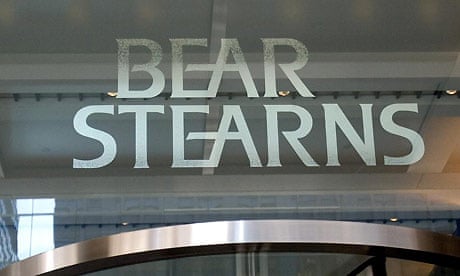The veteran Bear Stearns boss Jimmy Cayne is set to give up his role as chief executive of the struggling Wall Street brokerage following intense criticism over the firm's losses on America's sub-prime mortgage crisis.
Cayne has told boardroom colleagues that he will hand over day-to-day management, although he will remain chairman. Bear Stearns' president, Alan Schwartz, is tipped to become chief executive.
The changes have been prompted by a mounting crisis at Bear Stearns, which has historically specialised in mortgage-backed securities. The firm has written off $1.9bn in losses relating to last year's meltdown in the home loans industry and analysts have questioned its future as an independent entity. Citigroup, Merrill Lynch and UBS have already parted company with their chief executives.
Cayne has come under fire for taking time off to play golf during a crucial week when two Bear Stearns hedge funds collapsed last year. The Wall Street Journal recently accused him of smoking marijuana at a bridge tournament — an allegation he vehemently denied.
Bear Stearns declined to comment on Cayne's position on Tuesday. But a member of the firm's board, Northwestern University president Henry Bienen, told Bloomberg News that the 73-year-old chief would remain closely engaged: "Jimmy's still a huge shareholder. It's the board's view that Jimmy would stay very involved."
A cigar-chomping former scrap metal merchant, Cayne joined Bear Stearns in 1969. He specialised in building relationships with wealthy individual clients and was appointed chief executive in 1993. He owns nearly 5% of the firm.
The sub-prime mortgage crisis has wiped 55% off Bear Stearns' share price in a year. Several new investors have bolstered the firm's finances. But the firm is facing an investigation by federal prosecutors into its two ill-fated hedge funds and several investors, including Barclays, have sued over their losses.
Richard Bove, a banking analyst at Punk, Ziegel & Co, said Schwartz was inheriting a business "clearly in trouble" which could face takeover bids.
In early trading shares slipped $1.31 to a three-year low of $74.94.
